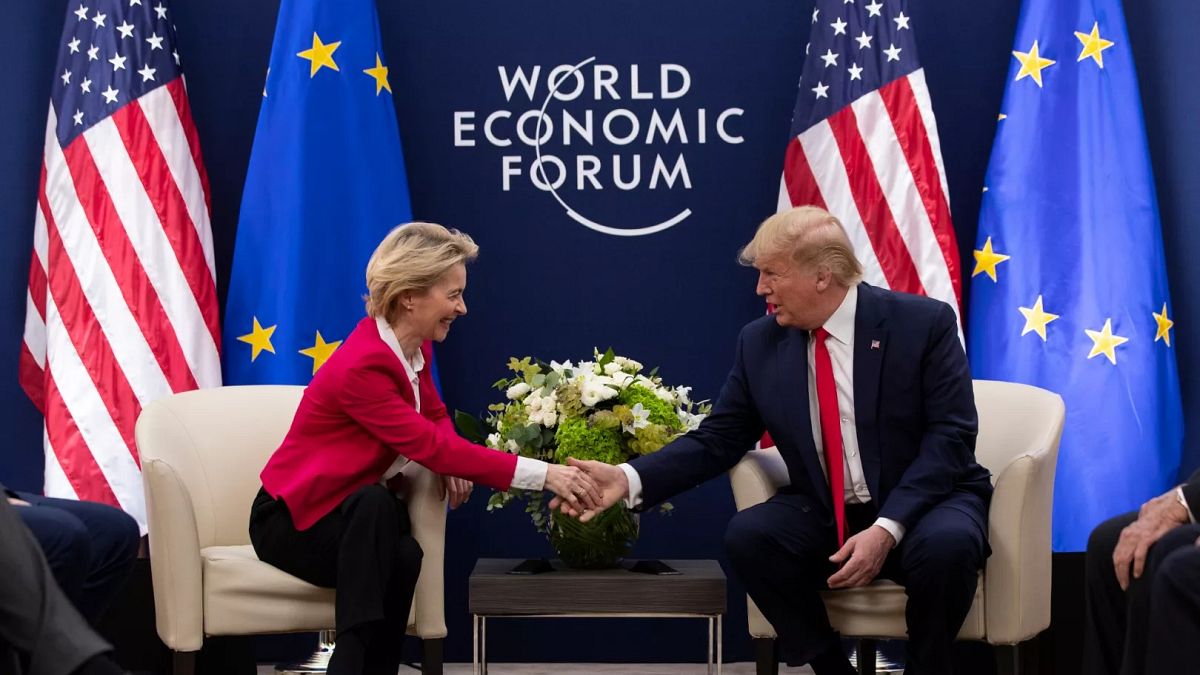

In a world where economic landscapes are continually reshaping, Europe and the United States stand at a potential turning point in their trade relations. European Commission President Ursula von der Leyen is set to meet U.S. President Donald Trump in Scotland to discuss pivotal transatlantic trade issues. This meeting forms part of ongoing negotiations amidst a critical juncture, where Trump has hinted at imposing a significant 30 percent tariff on all imports from the European Union. The anticipated talks aim to bridge differences and sustain a favorable economic relationship between the two powerful economies.
The atmosphere surrounding these negotiations is charged with both anticipation and uncertainty. While both parties are keen on reaching a trade agreement, Trump has publicly stated that the chances of arriving at a deal are a balanced fifty-fifty. The discussions are crucial not only for the immediate future but also for long-term economic partnerships, as they seek to address concerns and mitigate the impact of potential tariffs that could reshape economic exchanges across the Atlantic.
Not far from these negotiations, another interesting facet of economic development is unfolding in Kazakhstan. The nation continues to attract foreign direct investment, despite a broader slowdown in global FDI flows. Officials in Kazakhstan suggest that the current deceleration is merely a cyclical adjustment and not indicative of weakening investor confidence. What stands out is Kazakhstan’s ability to draw multibillion-euro deals, showcasing its resilient appeal to international investors and its strategic economic positioning.
Another significant development comes from the corporate realm, where Volkswagen, the renowned automotive giant, has been facing substantial financial challenges. The imposition of U.S. tariffs has significantly impacted Volkswagen’s profitability, resulting in a considerable €1.3 billion hit to its income in just the first half of the year. Despite this, there is a silver lining as strengthened European sales and a strategic focus on expanding their electric vehicle offerings present a robust path for future growth.
In the retail and distribution sector, Carrefour has made a notable move by selling its Italian supermarkets to NewPrinces for €1 billion. This strategic sale involves approximately 1,000 retail outlets across Italy and marks NewPrinces’ ambitious entry into large-scale distribution—reflecting the dynamic shifts within the European retail market.
Additionally, the European Commission has recently unlocked health funds after delays, unveiling its 2025 budget program aimed at bolstering health initiatives. However, this development comes with a backdrop of concern, as several civil society organizations report that the prolonged delay and budget cuts have led to significant disruptions, including layoffs and the suspension of critical activities. This situation highlights the delicate balance of policy impacts on public welfare and the importance of timely financial management for sustaining vital social services.
The evolving dynamics encapsulated in these diverse stories paint a broader picture of the interconnected nature of global trade, investment, and corporate strategy. They underscore the importance of agile policy-making and strategic adaptation in the face of economic uncertainties. As these narratives unfold, the coming days and months will reveal the ripple effects of these developments on the global economic stage, affirming the perennial need for resilient and forward-thinking engagement in today’s interconnected world.
Source: {link}
